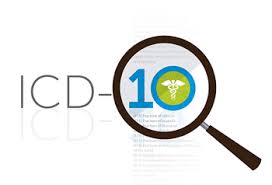
by CARL NATALE- DEC 30, 2015 – 06:00 AM
This is the time to do a year-in-review post. But the only event worth recapping was the adoption of ICD-10 coding Oct. 1. In the time since, we’ve constantly noted that there wasn’t enough data to know if that was a good thing or not.
Regardless, we need to move into 2016 with ICD-10 coding. Here’s how it will matter:
Big (and small) data will be used
We promised that ICD-10 data will lead to a new age in healthcare. Of course that’s not going to happen unless healthcare professionals use the data. But data analysis is not easy for everyone to embrace. The value isn’t obvious.
But if medical practices can associate diagnosis data with revenue, then the business starts looking different.
Or if they can see trends in the diagnoses, they could help patients better.
Even if you’re not believer in data, the federal government and private payers are. They’re going to examine your ICD-10 data to find ways to cut their costs. Maybe it’s not as simple as cutting reimbursements. But maybe they figure out how to invest money upfront to avoid recurring treatments.
Find a way to understand your data instead of accepting what someone else tells you.
Electronic health records (EHRs) will need checkups
In the first hours of ICD-10 use on Oct. 1, there were complaints about how ICD-10 codes made EHRs too complicated. All of a sudden, there were extra pull down menus. Cheat sheets were complicated.
Maybe the problem wasn’t the ICD-10 codes. Maybe the problem was the EHRs.
IT purchases are hard to get right. Many don’t fulfill promises. Sometimes, we don’t know what we should be buying.
Healthcare organizations are probably going to question if they got their money’s worth and expect their HIT systems to do better.
Specificity will matter
Maybe healthcare payers have been willing to accept some less than specific ICD-10 codes. But that’s going to change as they try to get a handle on the ICD-10 data.
They’re also going to be on the hunt for waste and fraud. Precision will be required because healthcare payers are going to want that data.
Which means medical practices will need to learn how to get ICD-10 coding right. That starts with improving clinical documentation.
This will rely on EHRs that don’t map ICD-9 codes to ICD-10 codes or employ clunky interfaces. So again, EHRs will be scrutinized.
Questions about ICD-10 reimbursement? Physician Credentialing and Revalidation ? or other changes in Medicare, Commercial Insurance, and Medicaid billing, credentialing and payments? Call the Firm Services at 512-243-6844 or credentialing@thefirmservices.com


